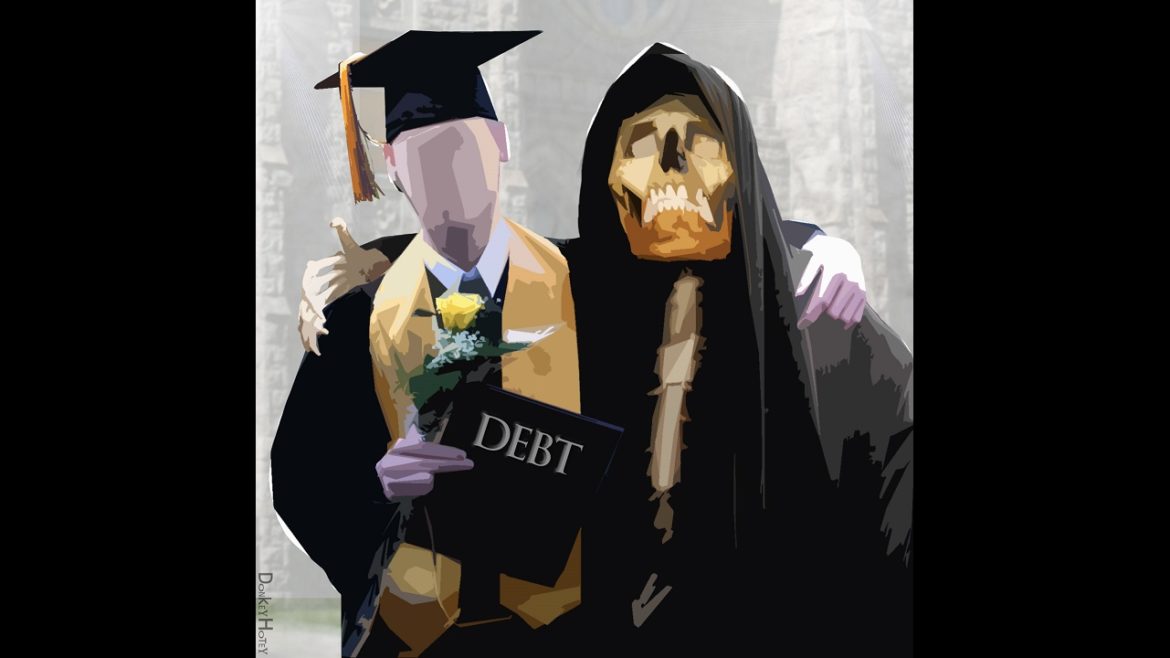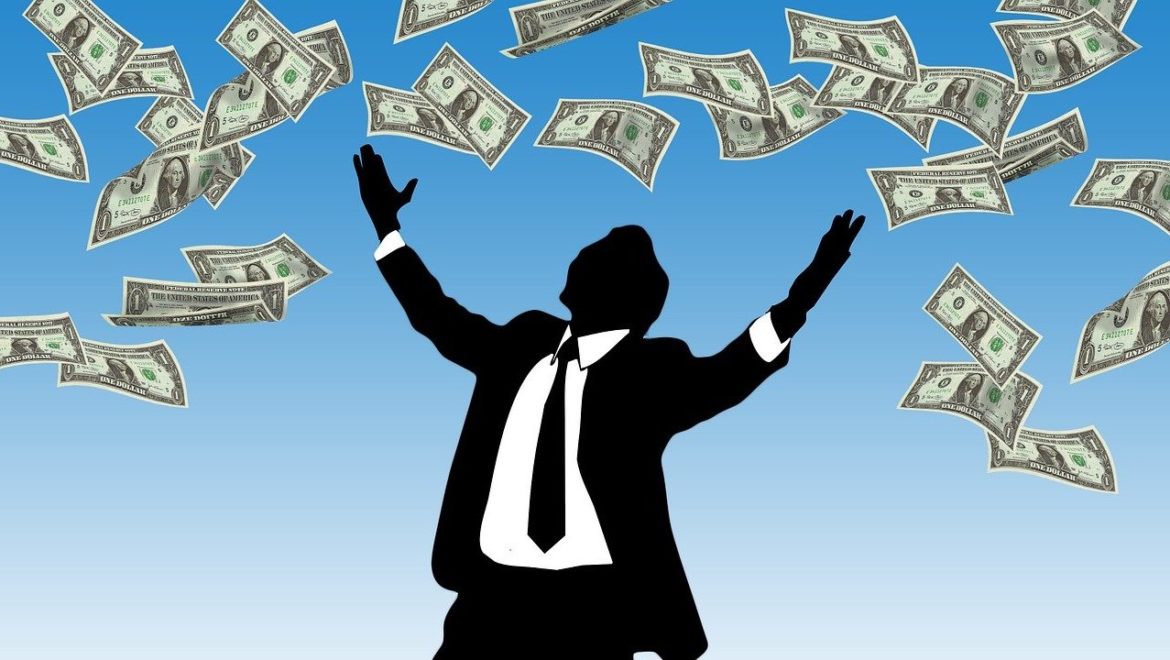Gold has all the potential to go unprecedentedly high. But silver will be gold on
Site:
Precious metals news
 Resumption of Student Loan Repayments Stressing Already Stressed American Consumers
Resumption of Student Loan Repayments Stressing Already Stressed American ConsumersOctober 11, 2023
After a more than 3-year pause, government student loan repayments started again this month and it's already putting the squeeze on borrower's wallets. This is bad news for an economy already strained by massive levels of debt and rising interest rates.Interest accrual on student loans resumed on September 1 with the first payments coming due in October.
The Reserve Bank of Zimbabwe (RBZ) has launched a digital payment system backed by physical gold.The RBZ rolled out its digital gold-backed token in April after successfully implementing a program to produce physical gold coins in 2022. On Oct. 5, the central bank announced that these gold-backed digital tokens could be used as a method of payment for domestic transactions.
I write a lot about the national debt.And most people don't care.That's because there's a widespread belief that the dollar is invincible.It isn't.
Today's big news was the Giant Shale Permian Merger of Exxon & Pioneer. But, why would Exxon buy Pioneer if there is BIG TROUBLE brewing in the Permian? Good question. I provide my analysis with an update on the Texas & New Mexico Permian and why Exxon overpaid dearly for Pioneer...
Oct 10, 2023 - 12:50:02 PDT
Hedge fund magnate Paul Tudor Jones expressed concerns over increasing geopolitical risks and the U.S.'s rising debt, making stocks less appealing. Speaking on CNBC's Squawk Box, he highlighted the precarious U.S. fiscal situation, the worst since World War II. Jones warned of a vicious cycle where rising interest rates amplify funding costs and debt, leading to further financial strain. He believes bitcoin and gold offer better investment opportunities in the current scenario.
Oct 10, 2023 - 12:42:01 PDT
Germany, a leading global economy, is heading towards a recession, facing consecutive monthly drops in wholesale prices, indicative of a broader deflationary trend. Both exports and imports have plummeted, with trade being a significant driver of the German economy. Past supply chain disruptions masked this decline, but deflation is now highlighting the issue. Challenges like an energy crisis, strained relations with Russia, and dependence on a slowing China further weaken Germany's position. The country is in no shape to stimulate global economic growth.
 Here’s Why the Fed Will Again Have to Slash Rates to Zero and Relaunch QE
Here’s Why the Fed Will Again Have to Slash Rates to Zero and Relaunch QEOct 10, 2023 - 12:32:51 PDT
The US economic growth is artificially sustained by extreme fiscal stimulus and significant deficits. Domestic savings can't support this borrowing level, and global creditors are hesitant too. Rising US Treasury yields aren't due to inflation but rather a "credit crunch" by global bond investors skeptical of Washington's fiscal behavior. This results in speculation that the Federal Reserve will have to intervene massively. Many indicators, like declining home sales and the precarious position of many banks, suggest potential economic fragility. As uncertainties loom, traditional safe havens like long-term government bonds or gold may offer protection.
We've got some electrifying news for you!
Oct 10, 2023 - 09:04:57 PDT
Inflation and stagflation historically lead to devastating societal impacts, often unnoticed until they become overwhelming. Current sentiments in the US reflect rising concerns, with many citizens believing their life quality has deteriorated. Inflation acts as a silent tax, exacerbating societal issues when central banks introduce prolonged interest rate hikes. This combination of inflation and debt poses significant risks to the US economy. As inflation grows, we can anticipate labor strikes, increasing crime, more frequent looting, population migrations, and potential balkanization.
 While Rapidly Heading to Zero, A Proposal to Fix Social Security With a Reliance on Stocks
While Rapidly Heading to Zero, A Proposal to Fix Social Security With a Reliance on StocksOct 10, 2023 - 08:50:21 PDT
Sen. Bill Cassidy proposes a risky Social Security "solution" by creating a separate $1.5 trillion fund to be invested in the volatile stock market. While he envisions this fund growing over 70 years, such investments are unpredictable. Cassidy claims this might cover 75% of the deficit, but this approach leaves a concerning 25% gap and raises questions about the long-term viability of his plan.
The potential U.S. government shutdown could negatively impact the GDP. Despite stopgap measures, the real issue is rising deficit spending and a ballooning public debt, currently surpassing $33 trillion. The Biden administration's projection hints at a $14 trillion deficit by 2032. Such fiscal irresponsibility risks future economic stability, potentially leading to increased taxes, lower growth, and inflation.
Rising rates on overnight repurchase agreements are impacting liquidity, extending into areas like T-bills and bank credit. This exacerbates challenges for financial institutions already facing difficulties from the highest US benchmark rates in over two decades. The surplus cash from pandemic-related injections is now depleting, further straining the system.
 Amid Historic U.S. Bond Collapse, Treasury Secretary Janet Yellen Tries to Calm Markets
Amid Historic U.S. Bond Collapse, Treasury Secretary Janet Yellen Tries to Calm MarketsOct 10, 2023 - 06:55:59 PDT
"I haven't seen any evidence of dysfunction in connection with the increase in interest rates," Yellen told the Financial Times. Yellen also said she is not concerned about a repeat of this spring's bank failures, which were triggered by rising rates, saying that credit quality overall was "very solid."
Oct 10, 2023 - 06:33:34 PDT
The IMF has increased its global inflation projection to 5.8% for next year while cutting the economic growth forecast for 2024. Inflation is expected to exceed central bank targets in most countries until 2025. This outlook coincides with global uncertainties, including the recent attacks on Israel and the aggressive interest rate hikes by major economies to tackle soaring inflation.
Fed officials, including Vice Chair Philip Jefferson, signal caution over the recent surge in borrowing costs. The rise in bond yields has prompted the Federal Reserve to reassess its monetary policy, potentially delaying rate hikes.
 U.S. Small Business Sentiment Declined Again in September on Continued Concern Over Inflation
U.S. Small Business Sentiment Declined Again in September on Continued Concern Over InflationOct 10, 2023 - 06:22:16 PDT
U.S. small business sentiment declined in September, according to the NFIB, due to inflation concerns and labor shortages. The optimism index remained below its historical average, with significant economic uncertainties and labor issues in sectors like construction and retail. Many businesses expect worsening conditions.
China is considering a budget deficit hike for 2023 to stimulate its economy. Officials may issue an additional 1 trillion yuan ($137 billion) for infrastructure, potentially exceeding the 3% deficit cap. This reflects China's economic concerns amid a property crisis and deflationary pressures.
Twenty days.That's how long it took the Biden administration to add another half-trillion dollars to the national debt.Bidenomics certainly requires a lot of borrowing and spending.
Oct 10, 2023 - 05:59:30 PDT
Deutsche Bank warns of rising inflation risks reminiscent of the 1970s stagflation era, accentuated by recent geopolitical events like the Hamas attacks on Israel. Factors such as soaring oil prices, consistent inflation above target in major economies, and potential weather patterns like El Niño, known for driving up commodity prices, add to the concern. While current inflation indicators differ from the 1970s, the bank emphasizes the importance of not being complacent, referencing historical lessons where inflation surged due to premature policy easing.
War broke out in the Middle East over the weekend after Hamas attacked Israel. In his podcast, Peter broke down the possible economic ramifications here in the United States. He said the US can't afford peace, much less war.










